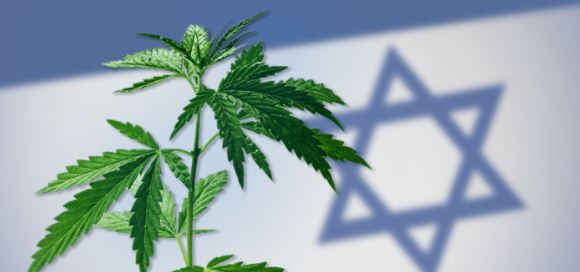

After three years of deliberations and a year after the government's decision on the issue, licensees to grow cannabis can apply for a permit to export. Increasing the capabilities of the police and the intensification of punishment, which were at the center of the objections, enabled the signing.
After three years of discussions, a government order is expected to be signed in the next few days to allow free export of medical cannabis for all its components. Exports are expected to generate NIS 4 billion a year, and NIS 2 billion in the first year. So far, a number of contracts have been signed, and an exceptional permit has been granted to carry out initial exports right near the signing of the order.
The order will be signed by Minister of Economy Eli Cohen, and any company / individual with a cannabis growing license can apply for permission to export abroad. Medical cannabis, among other things, helps cancer patients, Parkinson's and infectious diseases in pain relief and sedation. Approval assessments will be given as early as April.

The Dangerous Drugs Ordinance requires a license, for the export of a substance defined as a dangerous drug. The Customs, Health, and Agriculture ministries sought to amend the provisions of a free export order to permit the export of medical cannabis products only, with export license from the competent authority, the Medical Cannabis Unit in the Ministry of Health (Yakar).
Discussions on permitting export of medical cannabis began in early 2017. Knesset and government approvals were given more than a year ago, but discussions have continued on the wording of the final order - mainly because the police feared growing large quantities of strains in the country, and that some would go to the Israeli market, even to criminals.
More authority for the Police
To date, over 60 cannabis growers have been granted an export license from the Ministry of Health, but without the government order, it could not be exported. One of the disputes was resolved, as the amendment to the Drugs Ordinance increased the police's authority to handle any case of export of cannabis intended for export to the drug market in the country. The government decision also stipulates that the police budget will be increased for enforcement in the field, with the increase in the country - an addition of millions of shekels to the Ministry of Internal Security's budget.
The new order in its final formulation, which came to Ynet and Yedioth Ahronoth, allows for the export of cannabis strains, seeds, inflorescences, oils and extracts, packaged products in measured doses for retail sale - such as tablets or rolled flour for smoking - as well as stickers and pads containing cannabis, inhalers for cartridges, topical, and creams, and other products containing cannabis. Last year, Finance Minister Moshe Kahlon said, "Such exports will provide an important advantage for Israel in the field, due to the link between research and development, and agriculture and the cannabis industry in Israel."
The license will only be granted to those who comply with quality standards set by the Ministry of Health regarding the production, growth, storage and distribution of the drug, as well as securing each of these areas.
For the first four years, the ministers of health and home security will discuss the implications of opening the industry for export every six months.
The global cannabis market rolls over NIS 100 billion a year. The government estimates that Israel will account for up to 4% of that, i.e. about NIS 4 billion a year.
Source: Ynet